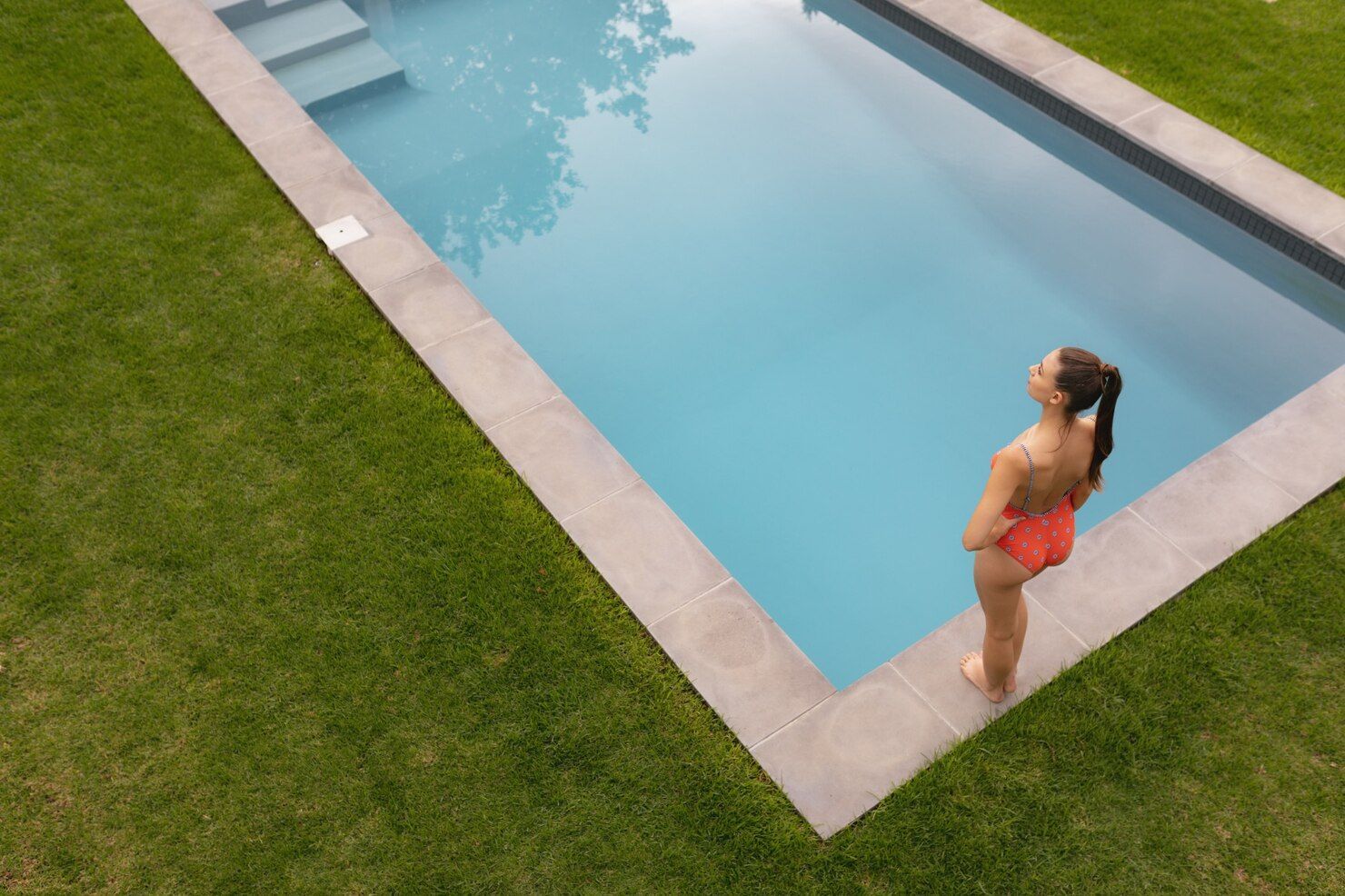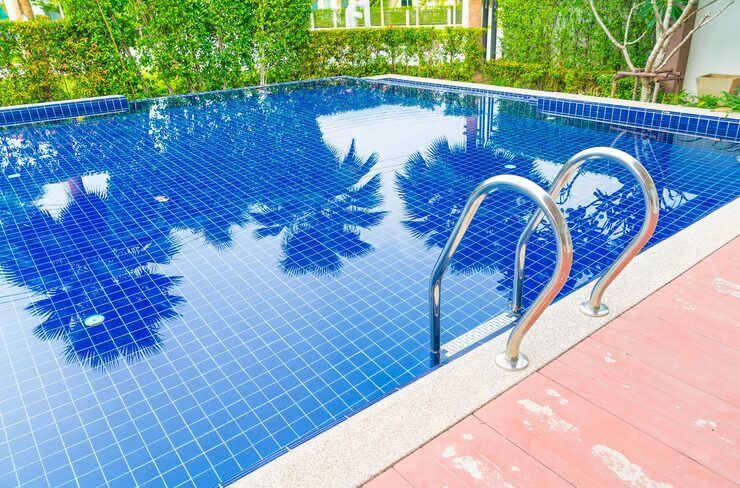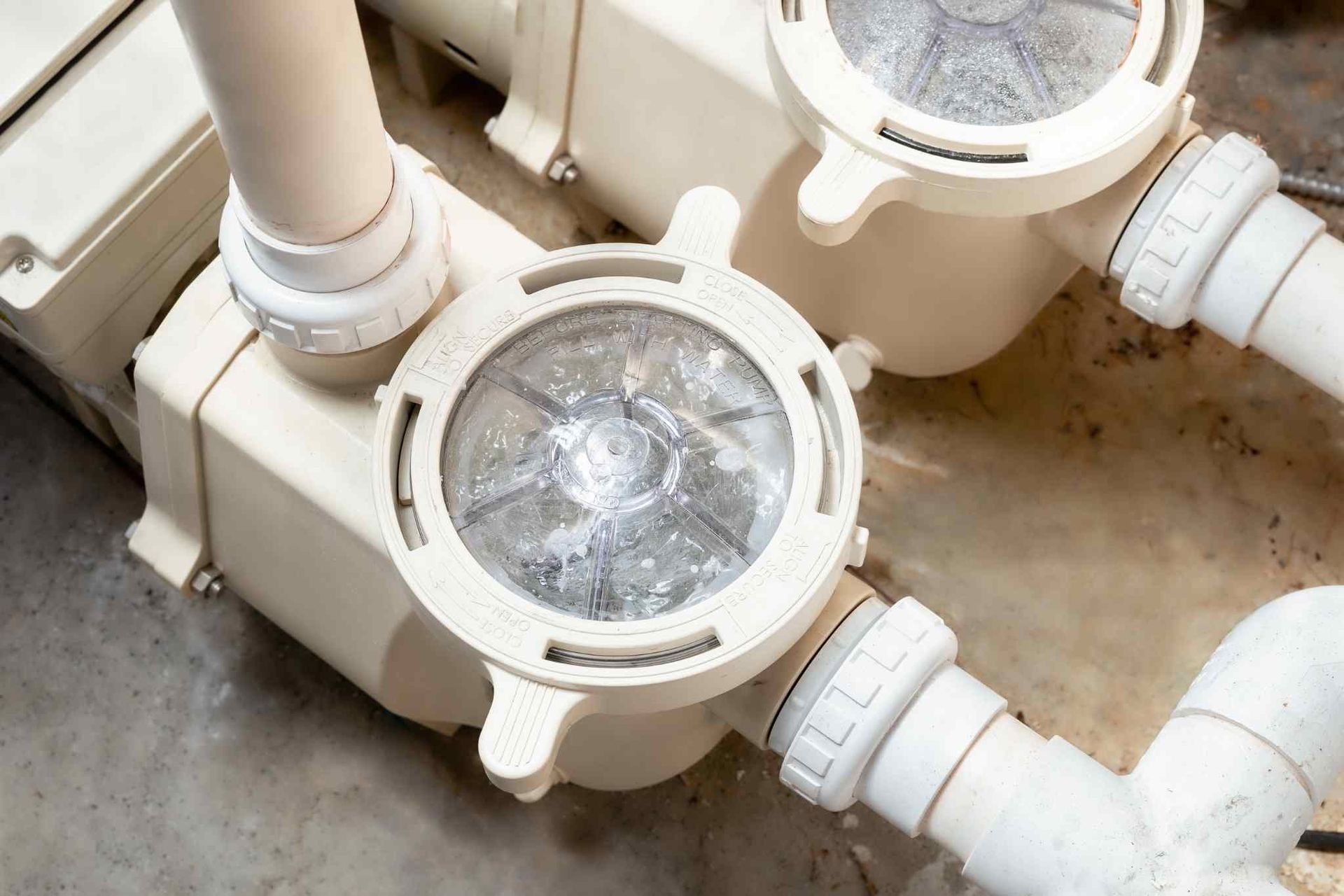Bromine vs Chlorine for Beginners: How to Choose the Right Pool Sanitizer
Choosing the right pool sanitizer comes down to understanding bromine vs chlorine and how each fits a pool owner’s needs. Both work to keep the water clean and safe, but they perform differently depending on temperature, pool type, and maintenance habits.
Chlorine acts fast and is ideal for outdoor pools exposed to sunlight, while bromine works more slowly but lasts longer, making it perfect for hot tubs and indoor pools. The best choice depends on how much time someone wants to spend
maintaining their pool, their sensitivity to chemicals, and the pool’s environment.
Here are seven simple tips to help beginners decide which sanitizer suits their pool best.
Table of Contents
Key Takeaways
✔
Choosing between bromine and chlorine depends on pool type, maintenance needs, and personal comfort preferences.
✔
A sanitizer’s main role is to kill harmful bacteria and keep pool water safe and clear.
✔
Mixing chlorine and bromine is unsafe because it can cause a dangerous chemical reaction.
✔
Switching from chlorine to bromine is possible but requires draining or cleaning the pool first to avoid chemical conflicts.
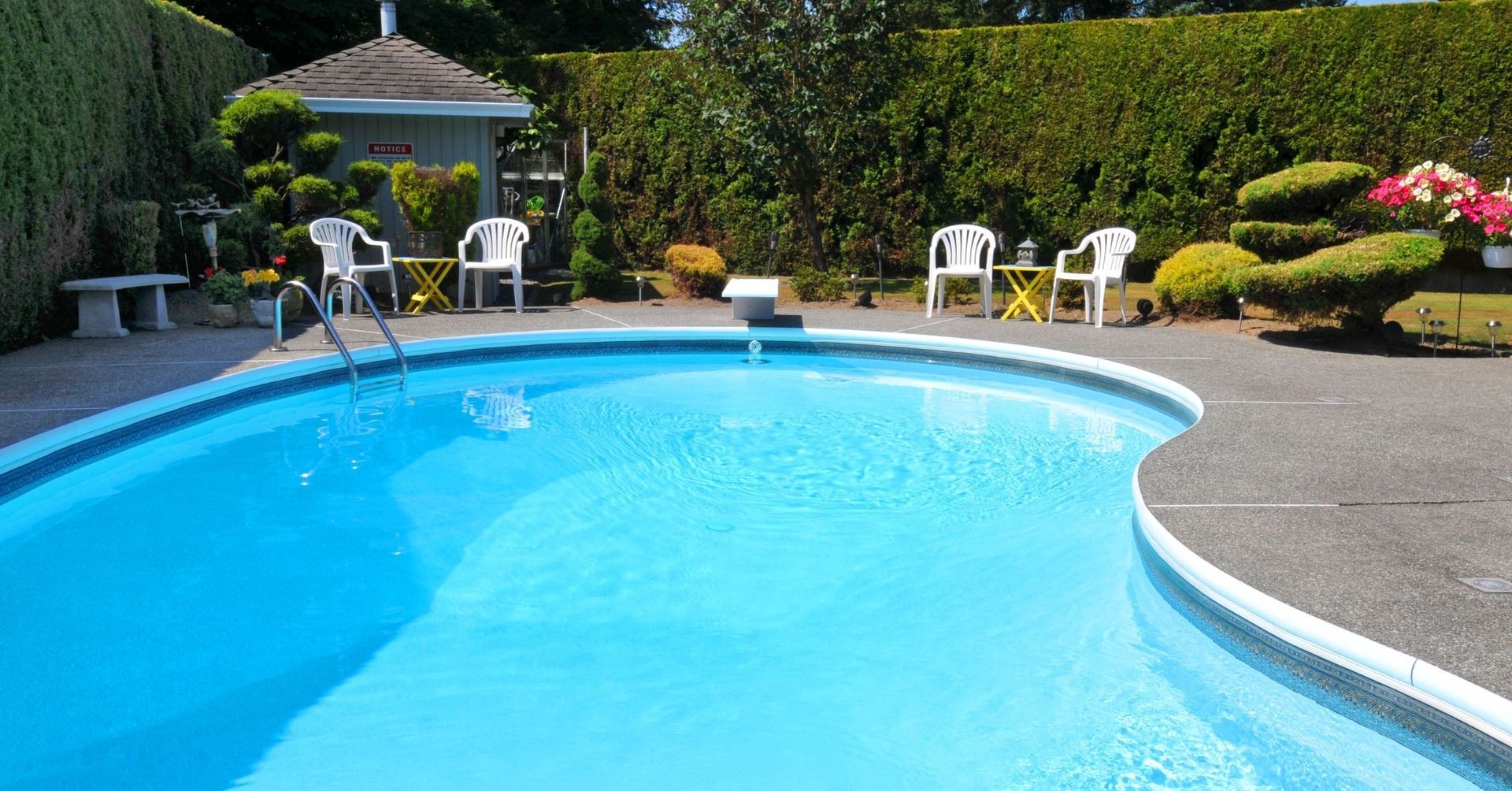
A Beginner's Guide to Bromine vs Chlorine Selection
1. Understand the Basic Function of Each Sanitizer
The main job of any sanitizer is to remove harmful bacteria and prevent algae growth. When comparing chlorine vs bromine, it helps to know how each performs inside the water.
- Chlorine: Works fast to kill bacteria and oxidize organic matter. It reacts quickly, making it great for outdoor pools where water is exposed to dirt, debris, and sunlight. Chlorine works best when pH levels are balanced, but it can lose strength under direct sunlight.
Regular maintenance is needed to keep chlorine levels steady.
- Bromine: Acts slower than chlorine but lasts longer in the water. It continues working even after killing bacteria, which makes it ideal for hot tubs, spas, and indoor pools. Understanding what does bromine do in a pool helps beginners see that it not only sanitizes but also stays active longer, reducing the need for constant testing.
Bromine’s steady performance makes it great for warm environments, while chlorine’s quick reaction works well in outdoor or high-traffic pools. A pool contractor often explains these differences when helping homeowners set up their pool systems.
2. Consider the Type of Pool or Spa
The kind of pool someone owns plays a big role in choosing between bromine pool systems and chlorine systems.
- Chlorine:
Best for outdoor pools because it performs well under sunlight and can quickly clean large volumes of water. It’s also cost-effective for larger pools.
- Bromine: Ideal for indoor pools and hot tubs because it’s more stable in heat and doesn’t break down as easily under UV rays. It’s also less harsh in enclosed spaces since it gives off a milder smell.
Knowing what is bromine in a pool helps pool owners see that it’s designed to provide consistent protection in steady, controlled environments. Chlorine, on the other hand, suits open spaces and regular sunlight exposure.
3. Think About Skin Sensitivity and Smell
Comfort is another key factor when choosing between bromine vs chlorine. Some people are more sensitive to chemicals, so their skin, eyes, or nose may react differently.
- Chlorine: Has a strong chemical odor that many people recognize. It can sometimes cause skin dryness or red eyes, especially for those with sensitivities. Outdoor pools can handle the smell better because of ventilation, but the scent is stronger in enclosed spaces.
- Bromine: Much more stable and lasts longer, even in higher temperatures. Understanding what is bromine in a pool helps explain why it can be reactivated with a simple shock treatment, meaning less waste and fewer adjustments.
Understanding what does bromine do helps explain why it’s considered the gentler choice—it keeps the pool sanitized without the harsh
effects of chlorine. For families or frequent spa users, bromine is often the preferred option.
4. Compare Maintenance and Stability
Maintenance is a big difference when comparing chlorine vs bromine systems. Both require testing, but one holds up better under heat and fluctuating conditions.
- Chlorine: Needs frequent testing and adjustment, especially in hot or sunny weather. It breaks down quickly under UV light and can affect pH balance, requiring constant attention.
- Bromine: Much more stable and lasts longer, even in higher temperatures. Once it reacts, it can be reactivated with a simple shock treatment, meaning less waste and fewer adjustments.
A pool contractor might recommend bromine for those who prefer easier upkeep and consistent performance throughout the season.
5. Evaluate Cost Over Time
Budget is another factor when deciding between bromine vs chlorine. While one might seem cheaper upfront, long-term costs can tell a different story.
- Chlorine: Usually cheaper to buy and easy to find at pool stores. However, it needs to be added more often, especially during heavy pool use or sunny months. For large outdoor pools, chlorine remains the more economical option.
- Bromine: More expensive per tablet or stick, but it lasts longer in the water. It doesn’t need to be replaced as often, which can save time and money in the long run. Bromine also requires less frequent testing equipment use, which further reduces maintenance costs.
Knowing what is bromine used for helps explain why it’s worth the investment for indoor pools and spas—it maintains clean, safe water with minimal effort. Homeowners can discuss these differences with a pool contractor to get accurate cost estimates for their specific setup.
6. Look at Water Clarity and Performance
Clear water is one of the best signs of a healthy pool. How well a sanitizer keeps it that way depends on its reaction time and stability.
- Chlorine: Cleans water fast and
handles bacteria and algae quickly. It’s especially effective for pools that are used frequently or by large groups of people. Chlorine also gives quick visible results after treatments, which makes it a popular choice for outdoor pools.
- Bromine: Works steadily and maintains water clarity longer. Knowing what is bromine in a pool helps explain how it keeps working after reacting with contaminants, providing consistent water quality. It’s also gentler on pool equipment, causing less corrosion over time.
Both sanitizers deliver clean, safe water, but bromine vs chlorine performance depends on pool type and use.
7. Decide Based on Lifestyle and Convenience
At the end of the day, the best choice depends on lifestyle and maintenance preferences.
- Chlorine: Great for those who want quick results and don’t mind frequent water testing. It’s affordable, strong, and widely available, making it easy to manage with regular attention.
- Bromine: Better for people who want less day-to-day maintenance. It’s steady, dependable, and perfect for spas, hot tubs, or smaller indoor pools. Understanding what is bromine used for shows that it’s ideal for anyone seeking consistent sanitation without constant upkeep.
When setting up a new pool, a pool contractor often recommends testing both sanitizers to see which fits best. Comparing bromine vs chlorine helps new pool owners make an informed decision about comfort, cost, and convenience that suits their everyday routine.
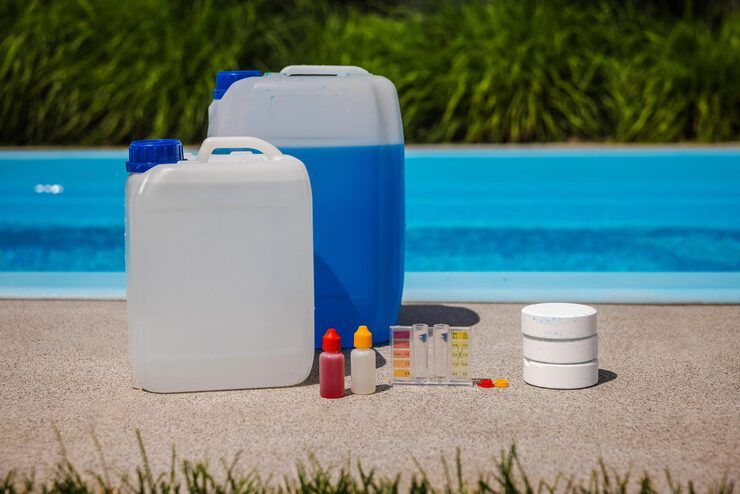
What Is the Most Important Thing a Sanitizer Does in a Pool?
A sanitizer’s main job is to eliminate harmful bacteria, algae, and organic material that build up in the water. Without one, the pool would quickly become cloudy, smelly, and unsafe to swim in.
Understanding what does bromine do in a pool and how chlorine works helps pool owners see their importance. Sanitizers keep the water clear and balanced so swimmers can enjoy it safely.
Whether someone uses chlorine or a bromine pool, the key is maintaining consistent sanitation. Regular testing and proper dosage ensure that the sanitizer does its job effectively. When unsure,
consulting a pool contractor can help with the correct chemical levels.
Is It Okay to Mix Chlorine and Bromine?
Mixing chlorine vs bromine products is never a good idea. Combining them can cause a dangerous chemical reaction that releases harmful gases and reduces effectiveness.
Always stick with one sanitizer system at a time. If switching, clean or replace the chemical feeder first to remove residue. Never add bromine to chlorine feeders or vice versa.
Those curious about what is bromine used for should know it’s a standalone sanitizer. It shouldn’t be mixed with chlorine in the same pool because of how each reacts in water. For safety and performance, consistency is key.
Can I Switch My Pool From Chlorine to Bromine?
Yes, it’s possible to change a pool’s sanitizer, but it must be done carefully. The process involves removing as much chlorine as possible before adding bromine.
- Drain or partially refill the pool to lower chlorine levels.
- Clean the chlorinator or feeder to remove any leftover chlorine.
- Add bromine tablets slowly and allow the water to stabilize before swimming.
Switching from chlorine to a bromine pool can reduce odor and make maintenance easier, especially for indoor pools or spas. Before starting,
it’s best to check with a pool contractor to make sure the equipment and water balance are ready for the change.
Frequently Asked Questions
How often should a pool be tested when using bromine or chlorine?
Pools should be tested at least two to three times a week to ensure proper sanitizer levels. Chlorine levels tend to drop faster, especially in sunny conditions, while bromine levels stay more stable. Regular testing helps maintain balanced water chemistry and prevents bacteria buildup.
Is bromine better for people with allergies?
Yes, bromine is often a better choice for those with sensitive skin or mild chlorine allergies. It’s less harsh and produces fewer irritating fumes. Swimmers who experience redness or dryness from chlorine usually find bromine pools more comfortable.
What happens if bromine levels get too high?
High bromine levels can irritate the skin, eyes, and throat, just like chlorine. It can also cause water to become cloudy. Testing kits help monitor levels and ensure they stay within the safe range recommended for pools and spas. Bromine levels should be between 4–8 pm. If the reading is above 8 ppm, it’s best to talk to the pool operator or owner to adjust and rebalance the water safely.
How long after adding bromine can someone swim?
It’s generally safe to swim a few hours after adding bromine, once the sanitizer has fully dissolved and levels are within the safe range. Testing the water first ensures safety and comfort. Waiting allows the bromine to distribute evenly throughout the pool.
Can bromine stain pool surfaces?
Bromine rarely causes staining when used properly. However, high concentrations or poor circulation can sometimes leave residue or discoloration on certain materials. Keeping the chemical balance and the water moving prevents these issues.
Build The Perfect Pool Experience in Danbury, CT With FJV Construction!
Creating a beautiful, long-lasting pool begins with expert care and craftsmanship. In Danbury, CT, FJV Construction delivers top-quality pool construction and renovation services designed to bring comfort, durability, and style to every backyard. Each project is handled with precision, from planning and design to installation, ensuring that every pool reflects the homeowner’s vision. With over 15 years of experience serving Danbury, CT, our team takes pride in turning ordinary spaces into stunning, relaxing retreats built to last.
Contact FJV Construction in Danbury, CT, today to schedule a free consultation and start building a pool that exceeds expectations.


